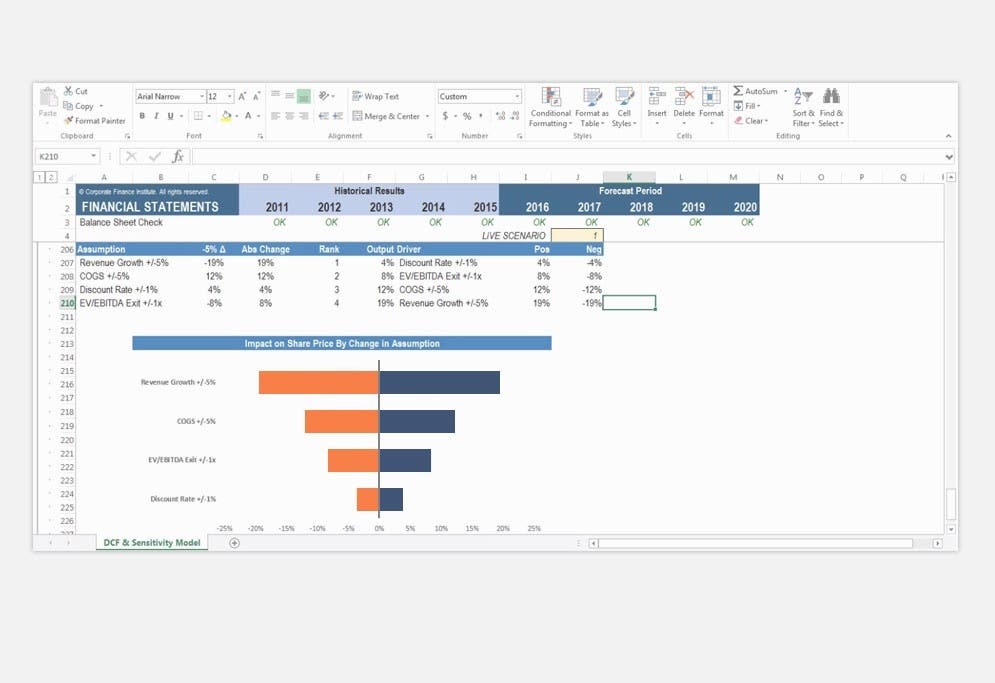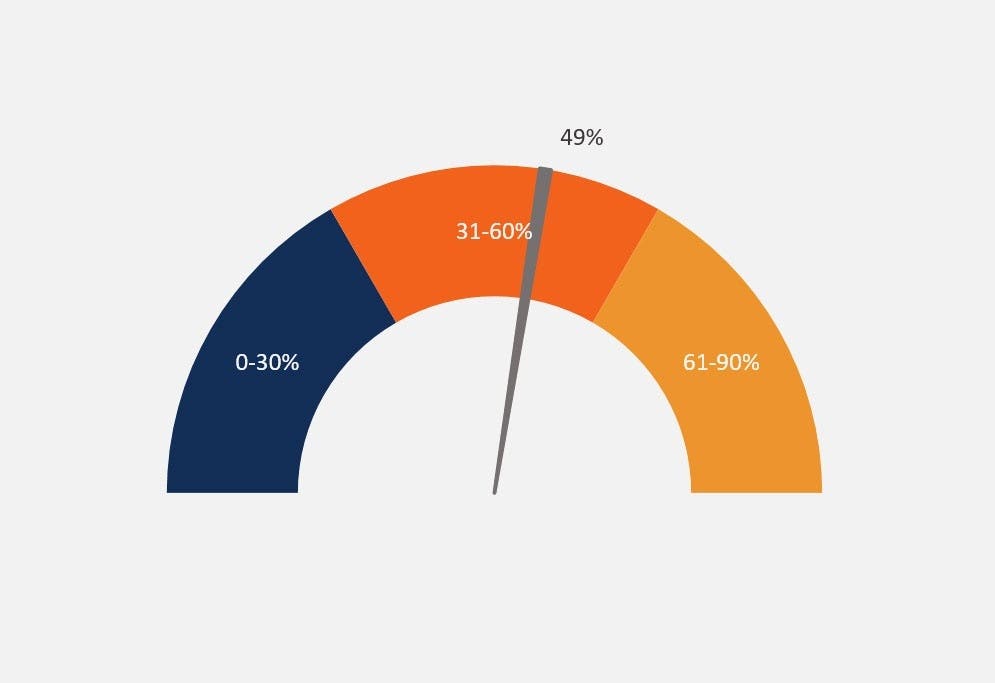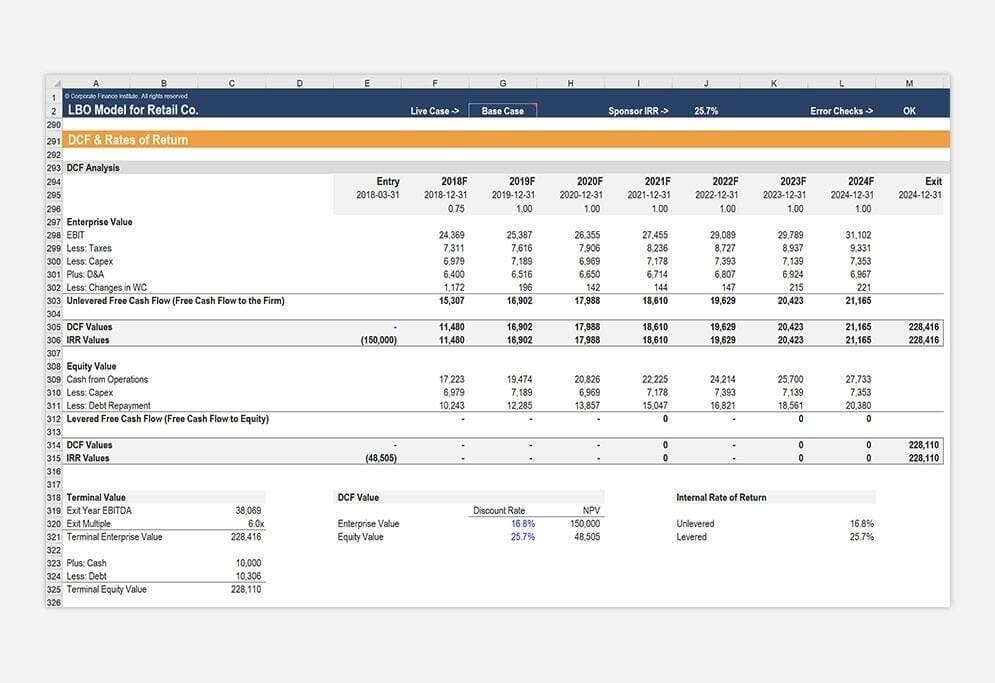What’s New CFI: Developing a High-Impact Financial Plan
In this episode of FinPod, we discuss our course for financial planners, advisors, and wealth managers on developing high-impact financial plans. We cover how integrating financial plans into a wealth management practice adds value for clients and advisors. Also, we emphasize best practices for effective goal-setting and how structured financial plans can realize your clients’ objectives.
Tune in to gain insights and a deeper understanding of how the core components of a financial plan add value for your clients!
Transcript
Asim (00:14)
Welcome to the What’s New at CFI podcast. I’m Asim Khan. I’m joined today by my colleague Scott Powell, who is the Chief Content Officer and co-founder of Corporate Finance Institute. Welcome, Scott.
Scott (00:26)
Hey, thanks. I’m delighted to be here. Asim.
Asim (00:29)
Great. Today’s subject is our course on developing a high-impact financial plan. And by that, I mean personal financial plan. It was, I think it’s a necessary course. I think this is one of personal obligations that people tend to ignore or put off until it’s a little bit too late. I guess I’ll just come out and ask the big question right away, Scott. What’s the difference between, or what do you think distinguishes
high-impact plan from a plan.
Scott (00:57)
Yeah, so I liked your comment, to begin with, that a lot of people come to this exercise too late. I have a lot of friends who start planning and they’re five to 10 years away from retirement. And I’m gonna tell you, so one is I think this is one of the most valuable courses in our curriculum around financial planning and wealth management. And it is probably the most mission-critical. If I think about anything you’re doing in wealth management, this is at the core.
So your question is what separates a high-impact plan from just a plan? It’s really what I wanna say is the comprehensiveness of the plan. And in the course, we’re teaching you how to create the most comprehensive plan that will lead your client to success because there are many elements of financial planning. A lot of people think it’s just about retirement, but it’s also about setting what those financial goals are,
and so on. So I’m happy to talk about all the components of a financial plan, but having been also as the receiver having someone manage my wealth and help me financially plan, it’s profound. It’s been profoundly impactful on the way I live my life, how I’m planning for retirement, and we’re actually unlocking the secrets behind successful financial planning. And
Our colleague Mark Ristic who has done this for a living, is sharing all his tips on what makes a successful plan and how creating a very robust high impact plan is really gonna create a lot of value for your clients in wealth management.
Asim (02:28)
Yeah, no, that’s a great comment. I think what really struck me is that we’re both financial guys. You know, we deal in high finance, but we have somebody else doing our financial plan. That’s that. I mean, if we’re doing it, other people should who are maybe like school teachers or doctors or nurses or something like that, who don’t have the same financial acumen.
Scott (02:41)
Yes.
Yeah, you’ve just nailed it on the head. I remember being in my 20s and early 30s and being very, I’m just gonna use the word arrogant, overconfident. Like I can manage this myself, I’m a finance guy, right? And it was only when I hit 40, now I’m 57 now that I, it’s like, why am I doing this when we have experts? I’m doing this off the side of my desk,
outside of office hours because I have a full-time job. And it’s like, why would you do this as an amateur when you could have a professional who’s doing this full-time?
Asim (03:23)
Yeah, I think 40 is right about the number where people kind of have that. Uh-oh. I had better get my house in order, but what a huge advantage if you start at, you know, with your first job, you know, right at 21, 22, you’ll be way ahead of the game. I thought one. Yeah. Right. Um, because good power of compound interest, I suppose the more time you give it, the better off you’re going to be.
Scott (03:27)
Yes, exactly.
I know.
Exactly.
Yeah, exactly. It’s interesting because I started my career in the UK and I had my first employer, I was only with them for three and a half years. But and I was earning a tiny salary because I was starting my career and I just got notified of how much that has grown to and I’m literally shocked because it was tiny amount of money but it’s again that power of compounding. Right? It was, I don’t want to tell you, it’s more than 30 years ago, right?
Asim (04:15)
Yeah.
Scott (04:15)
Was more like 35, 37 years ago. So the power of compounding. The other thing I’m gonna say is that a lot of our learners that CFI in their twenties. Now, and I’m gonna, even if you’re doing the FMVA or some other part of our curriculum, I think you as an individual would benefit from this course, even if you’re not going into wealth management as a career, because you can even start thinking about the core components of a financial plan.
The only thing I’m going to tell those folks in their 20s is learn from you, Asim yours, and my experience, is that leave it to the professionals. There are professional wealth managers for almost every income threshold. And whether you have a million dollars to invest or you have $5,000 to invest, there’s someone there who will be willing to help you.
Asim (05:02)
Nope, that’s absolutely correct. And just about every bank has somebody there doing financial planning. Even kind of your smaller community bank, you can find somebody. I thought having gone through the course, one of the more insightful comments that I latched onto at least was that you should work backward, like pick your goal. This is how much I like to have when I retire at this specific age, just be very specific.
Scott (05:11)
Mm-hmm.
Asim (05:27)
And then you can use the annuity formula, which you’ll pick up in our financial math class, to work back to how much you should be contributing periodically to get to that number, right? Yeah.
Scott (05:37)
Yeah, Asim, it’s interesting you say that because the course basically says best practices start with the end in mind. What are your goals for the future? And then work back. And I know that sounds obvious, but we don’t think about that. But if you know you wanna retire and have 100,000 a year, we can work back. And then that leads to other things like, oh, how much should I be investing now, even if I’m 20? And to your point, Asim, you may be surprised, it’s doable.
if you’re 20. But if you’re waiting until you’re 40 or 45 and you’re looking for that 100,000, you’re going to have to find a lot more money to put in.
Asim (06:11)
Yeah, absolutely. I mean you lose a lot of time value the longer you work right And then is there and this is um, the course is sort of uh, country neutral, right? It’s Neutral it’s something that everybody can use no matter where in the world they are. We have learners from around the world at cfi right, so
Scott (06:14)
Yeah.
Yeah.
Yeah, I don’t know if you want me to comment, but it is our intent at CFI to be global because we want to support our learners wherever they are. So we always try as best we can to apply principles that would apply equally wherever you are in the world and not talk about unique investment products that let’s say are only available to US investors or UK investors. So this truly is a course that you can take and build a high impact financial plan whether
you’re in the Middle East, Africa, South America, North America, or Asia.
Asim (07:02)
Scott, we’re dealing with one aspect of our course in wealth management. Could you tell us a bit more about the course?
Scott (07:09)
Yeah, so what we mean by a high impact financial plan, as I said, it’s comprehensive. And we actually go through a seven step framework of what a financial plan needs to include. And you’ve already given the first step, which is scope out the goals. And so, what does 20 or 30 years look like? What are your goals, short term, medium term, long term? And then it’s one of the things that I think it’s, by the way, this is so practical and applied.
It also is real world. I think about the exercise I’ve done with my wealth manager and it’s most of this, but it’s interesting. Even when I went through this course that Mark put together, I recognized some gaps in terms of what my financial planner and wealth manager missed. And so one of the things, the second step is to work with your client to understand and budget. Like how much are you spending on housing? How much are you spending on food? A lot of us don’t track that.
And even that can give insight to your client. Like really, I spend this much on, you know, streaming services or whatever it is. Because match, looking at that budget and looking at how much money you’re spending, just that exercise in itself gives you then opportunities to change the way you spend. And together with your goals, if you think about where you wanna go, it’s giving, empowering your client to think about, here’s how much I’m spending now, which maybe they don’t really know.
Here’s what I want to do and can I actually put a hundred bucks a month into something? You know, it’s that type of thing. It then goes into really thinking about debt and credit management now. And I think about it this way, like, do you have lots of different loans? Can we consolidate those loans? What loans are you spending paying the highest interest on? Can we actually consolidate into a lower interest product?
So there’s things that can help you immediately. The next thing is then to really think about retirement planning and what that looks like. There are elements of tax planning. Now, one of the things, Asim, you’ve already said is we’re not gonna be jurisdiction-specific. So we’re gonna talk about just tax planning generally because ultimately there are gonna be taxes on your income, taxes on capital gains on your assets, and also taxes that are related to even inheritance tax as we pass our wealth.
Maybe onto another generation. And that’s why the sixth element is all about estate planning. And then once we all know the state of play, then we need to think about how do we wanna invest? Are we gonna invest in fixed income and equity? So the seventh element is really investment planning. And sorry, I know I’m doing a lot of talking, but there’s a logical order. So what I loved about the course that Mark designed in partnership with us is it’s not just those seven steps, but to do them in this order, start with the goals.
Asim (09:42)
No, please go this way.
Scott (09:53)
Then think about what are you spending now? Then think about, let’s think about the debt you have. Can we consolidate that debt? Now let’s look to the future. What does retirement look like? Let’s think about the tax planning around that. Let’s think about handing our, you know, it’s like there’s a logical flow to it that replicates best practice if you’re doing it for yourself, which I’m saying you could do with this course, but if you’re doing this with your clients, which is what we’re trying to support.
Wealth managers and financial planners, we want to give them a boilerplate best practice way to create a high-impact plan for their client wherever their clients are in the world.
Asim (10:30)
That’s really great. And I like the bit about loan consolidation. So, somebody has a credit card they’re paying off at 22%, for instance, and they can get it refinanced through some third-party loan company at 15%. They’ve, in effect, saved themselves 7% a year on that balance. Right?
Scott (10:47)
Yeah, and also it’s things like that are what I’m going to call low-hanging fruit for your client. As a financial planner and wealth manager, helping that client do that is going to create value immediately for that client. And they may not have even been aware that was possible.
Asim (11:05)
Yes. And so I guess wrapping up, we can say, and both you and I can attest to this, start early, start when you’re young, because time does indeed fly. You’ll learn the world past before you know it. And please take the course and good luck with your financial planning goals. Thank you, Scott, for joining us today.
Scott (11:16)
Ha ha ha!
Thanks, Asim. Pleasure to be here.





